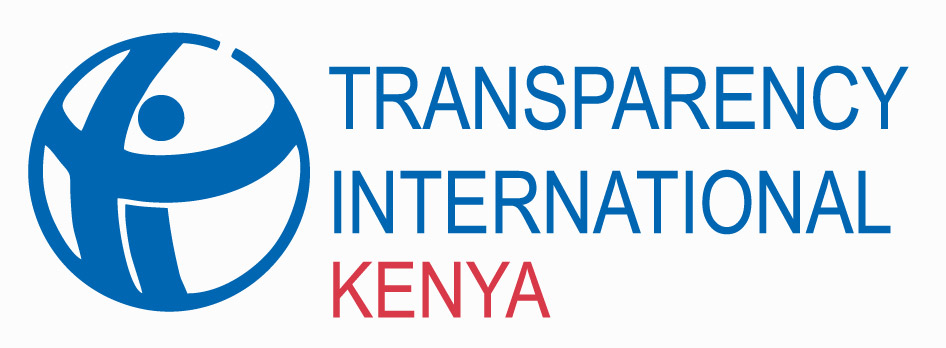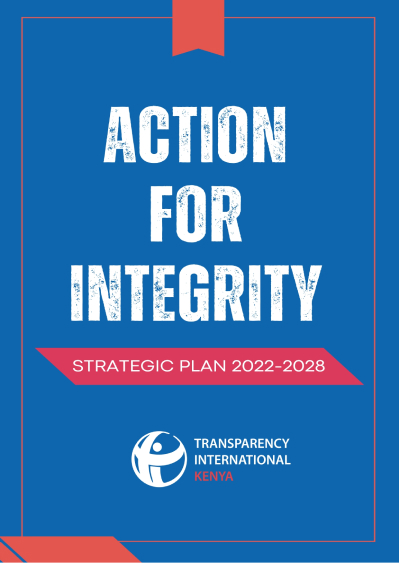By Titus Ogalo
Citizen led practical measures of realizing effective accountability and oversight at the county level remains one of the most superficially discussed, deliberated and documented aspect about Kenya’s devolution journey. Unless there is a radical shift in focusing on deliberating, developing and pin pointing practical measures, strategies and approaches targeting the public and commensurately investing on such strategies to realize highly organized citizenry at the grassroots to hold their leaders accountable, we should not expect much change for the better. This in my opinion, is the greatest Achilles-heel in getting discussions right on realizing working accountability approaches at the county levels and generally tackling corruption in Kenya.
The Missing Link in Devolution
Research, surveys and reports on County governance by various institutions like the Ethics and Anti-Corruption Commission, the Auditor General and the Controller of Budgets have consistently pointed out threats posed by corruption in realizing the fruits of devolution. Gaps are still noticeable. Most literature in circulation disproportionately remain descriptive and deficient on pinpointing actual and practical measures aimed at arming citizens with practical tools, steps and strategies they could employ in making the County governments more responsive, transparent and accountable. Secondly, in cases where there are such data and recommendations on what should be done, the focus has tended to be more on what the same County Governments should do (executives and assemblies). Unfortunately, the experience and anecdotal evidence so far indicates that Counties have done little in strengthening systems and mechanisms for accountability. This can be validated by the manner assemblies have delivered on their oversight work, ineffectiveness of some of the proposed internal systems by PFM Act[1] for instance having effective internal audit units, creating functional County Budgets and Economic Forums and even producing budget quarterly implementation reports across Counties and in cases where there are attempts, such systems are largely ineffective. Thirdly, a review of various materials and public discourse on enhancing accountability and transparency have remained shallow around normal rhetoric on public participation which is one of the most overused and abused words in the Kenya’s devolution discourse. We are yet to figure out what it means.
Public Participation Laws
Several counties have public participation laws, which are hardly being implemented. A faithful implementation of the County Government and Public Finance Management Acts would revolutionise public participation. Absence of laws and policies is not really the problem. The late Prof. Okoth Ogendo was right to observe that Africa’s main governance problem is less about existence of good constitutional structures but more the absence of constitutionalism and the habit to respect and observe rules[2].
In getting accountability right at the County level, we should begin with what we already know. The past 5 years have validated a number of concerns that were made by various scholars and pundits on devolution. The World Bank for instance gave advise on getting accountability right from the beginning. They opined that, global experience and empirical research provide many examples of accountability failures in decentralization reforms, leading to substandard service delivery and corruption[3]. Additionally, they observed that traditionally, accountability has been about having strong systems of reporting to a central authority that can act if resources are managed poorly. The approach is less effective in decentralized settings. This leaves the bottom up approach of empowering the citizens to hold their elected leaders accountable as the best bet. There is no doubt need for complementarity. There has been no much effort in empowering the public. The County Assemblies that constitutionally have the oversight mandate over the county government have largely failed. According to Transparency International Kenya’s (TI-Kenya) report on County Governance Status. Interestingly, the MCAs polled in the survey from all the 47 Counties, 28% indicated that initiating development projects in their wards was their top achievement, followed by advocating for marginalized/PWDs/Youths and Women issues at 16%. Clearly, someone else must step up to perform the abdicated duty of oversight at the Count level.
Other Key Accountability Organs at The County Level
Other than poor public organization and investment for accountability, there is also lack of attention to other critical county level organs and bodies in enhancing transparency and accountability. A number of Civil Society Organizations in partnership with some government agencies have so far made commendable efforts in supporting operationalization of Internal Audit Units, establishment of the City/Town Management Boards e.tc, but one of such organs; County Public Service Boards (CPSBs) has hardly received much attention from other stakeholders. CPSB as county government structures have received the least attention from various quarters despite the critical and centrality of CPSBs in ensuring success of devolution.
The County Governments Act 2012 provides that CPSB members are appointed by the Governor of each county with the approval of the county assembly, and enjoy the same security of tenure as the members of constitutional commissions under the Constitution. The role of the board is to establish and abolish offices, appoint public servants, and exercise discipline over them (County Governments Act (GGA), sections 57-59). The CGA therefore identifies the CPSBs as key repositories of management of county public service in ensuring effective service delivery. Other key responsibilities of the board include; ensuring promotion of values and principles of governance in Article 10 and 232 of the Constitution of Kenya within County Public Service. Anecdotal evidence however indicates little independence of the CPBS both within the boards and in the operations which makes them appear as appendages of the Governor’s office thus undermining their potential of addressing numerous public service related challenges facing counties.
From the onset, the underestimation of the importance of the Public Service Boards manifested in the lackluster approach given by most counties in establishing and operationalization of these critical structure, undoubtedly due to political expediencies, weak or lack of knowledge in the value system in the Constitution and even after the establishment. The other practical reason attributed to this is the variation of county government staff seconded from the national government, inherited from the former local authorities and new appointments. The County governments have not done a uniform training for all these categories of county staff making it hard for counties to exercise fidelity to a common value system. Lack of adequate attention from other wider stakeholders in engaging with the body compared to county assemblies and executives have also not helped in focusing on strengthening the body despite aspects of public service currently constituting a huge chunk of county government challenges.
Some of the immediate challenges of Public Service Boards are already manifesting in elite capture and politicization; which is a common dysfunction of decentralization and by extension devolution. Weaker systems at the sub-national level create more opportunities for public sector recruitment and promotion, and make the process to be non-meritorious and less transparent. Additionally, uncontrolled spending on personnel costs is a common feature of weak sub-national governments in many countries. Lack of cooperation with the Auditor General from the county staff as indicated in the Auditor General report is anecdotal evidence that county government staff require more than just trainings that will entrench values and integrity in their work.
The outcome of devolution significantly depends on how effectively public servants are motivated, directed, supervised, supported and held accountable. The vision of devolution will be translated into realitythrough the work of public servants in county government administrations. Conversely, public service can also be a major source of inefficiency andineffectiveness. Whether devolution makes public servants more responsive and accountable or more inefficient and ineffective depends on the framework for devolved public servicemanagement.
Getting Accountability Right
In conclusion, devolution is still work in progress, but on matters transparency and accountability the foundation is yet to be laid. Ultimately, the game changer in realizing accountability lies with acting on current demobilized citizenry at the grassroots level and swiftly so, to tame the growing apathy amongst citizens on the increasing perception that corruption has been devolved. We need to start from the basics of community organizing and building effective community groupings along various interest groups. Cloward and Piven in their famous publication “The Cloward-Piven Strategy” on weight of the poor- a strategy to end poverty[4]– provides some light. The strategy largely advances that a basis for convergence need to be provided for realization of organizedgroups, and selling to the public how they ought to benefit from the public resources. The result could lead to a political crisis that will ultimately force the authorities to act in their interest.
The strategy is based on the fact that there is a discrepancy between the benefits for which people are entitled to from welfare programs, and the sum, which they actually receive. In the Kenyan context, tapping on the number of loose interest groups, youth groups, women groups and Chamas at community levels and capitalizing on the funds being created by counties for instance, Bursary funds, co-operative funds, elderly funds etc and applying the Cloward – Piven Strategy, we can begin to walk the talk on bottom-up accountability and transparency.
International Budget Partnerships Kenya (IBP-Kenya)[5]in their publication on deliberating budgets – moving away from normal public participation rhetoric, also observes that demobilized citizenry is the biggest gap more than lack of legislation in matters engaging the public in budget matters in Kenya. They also opine that public deliberation is more useful in refining public participation and, ultimately, it offers more specific guidance for thinking about how the public engages with budgets drawing on the concept of deliberative democracy. Ultimately the engagement can only happen better and effectively when the citizenry is organized and especially at the grassroots levels. The best way to achieve that is to change the narrative of wastages at county level perception, to make public know that “they have their direct share in the loot”
[1]Sections 137 and 166 of PFM Act outline the significance of CBEF and doing QEBRs respectively.
[2]H.W.OOkoth –Ogendo ‘Constitutions without Constitutionalism’
[3] World Bank (2011) Kenya’s momentous devolution.
[4] The Cloward-Piven Strategy — Copy courtesy of: http://www.ProtectOurLiberty.org
[5] Jason Lakin and MokeiraNyaghaka (2016) Deliberating Budgets How Public Deliberation Can Move Us Beyond the Public Participation Rhetoric. IBP-Kenya

